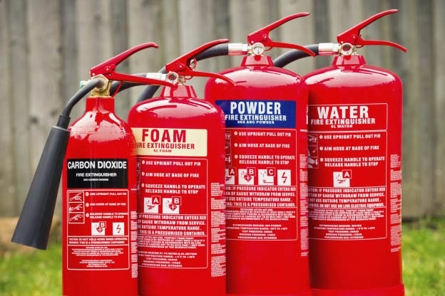
This year, Fire Prevention Week starts Sunday, October 3 and goes through Saturday, October 9. This awareness week encourages communities to prevent fires in the workplace and in their homes. With proper planning and preparation, businesses can take big steps to avoid the dangers of commercial fires and the destruction they cause. Fires can be catastrophic for businesses, causing damage costing thousands to millions of dollars, while also putting employees and neighboring businesses in danger.
Why Is Commercial Fire Prevention Important?
According to the U.S. Fire Administration (USFA), an estimated 96,800 fires occurred in nonresidential buildings in 2016 alone. The USFA report states that these fires resulted in over two billion dollars in losses. Taking steps to actively prevent fires in the workplace can help your business avoid these costly damages.
Tips For Commercial Fire Prevention
To help prevent your business from catching fire and causing extreme damage and expensive repairs, make sure your employees are involved in fire prevention awareness. Provide them with these fire prevention plans and tips during Fire Prevention Week to help reduce fire hazards in the workplace and educate on workplace fire safety.
Keep Workplace Areas Free of Clutter
Workplaces are prone to clutter, which can become a fire hazard if left unchecked. If a fire starts near a cluttered area, the flames can spread much more quickly. Examples of common office clutter include:
- Trash cans
- Empty boxes
- Decorations
- Recycling bins
- Paper
- Overfilled bins
- Messy desks
Have employees double check their workspaces and remove any unnecessary clutter. Then, inspect emergency exits and other escape routes to ensure there are no fire hazards in the way. These spaces should always be open and unblocked by furniture or business-related assets.
While offices do tend to have many paper products scattered throughout, warehouses, clinics, and other workplaces can also be prone to clutter, raising the risks of fires. Regardless of where you work, make sure that clutter is at a minimum and there are steps in place to keep areas clean.
Avoid Overloading Circuits and Outlets
According to the National Fire Protection Association (NFPA), some type of electrical failure or malfunction contributed to the ignition of an estimated 16,070 non-home structure fires every year between 2010 and 2014. This specific type of fire resulted in an average of 630 million dollars in damage annually to businesses.
There are many hazards with electrical cords in the workplace. Overloaded circuits can cause products to overheat and possibly catch fire. Other times, wires within the walls can overheat, causing a fire to ignite. Sometimes, circuit breakers can malfunction, which could result in a fire. To stay protected from an office or business electrical fire, follow these tips:
- Never overload circuits, outlets or surge protectors.
- Never connect an extension cord or a power strip to another extension cord or power strip.
- Only use extension cords temporarily.
- Replace worn, old or damaged extension cords immediately.
- Only use one heat-producing appliance, such as coffee makers, in an outlet at any given time.
- Try not to run electrical cords across doorways or under carpets.
Keep Heat-Producing Equipment Away From Fuel Sources
Some pieces of equipment produce more heat than others. Identify which equipment used in your business runs hot, such as copiers, and keep that equipment in areas that are free of fuel sources. For example, the copier room should be well-organized, and all excess paper should be stored and discarded appropriately.
Common office heat-producing equipment also involves lamps, computers, servers, and more. Computers are prone to overheating, so remind employees to turn off and unplug their computers when they go home at the end of their workday. Ensure server rooms are away from clutter and are not overloaded and are not near paper or other flammable items.
Finally, consider replacing light bulbs with LED lights, as those pose far less of a fire risk than older bulbs. Not only do they pose less of an office fire risk, but they are also more environmentally friendly.
Check Your Property’s Smoke Alarms Regularly
Once a month, someone should test your facility’s smoke alarms and smoke detectors. These items should also be replaced every 10 years to ensure that if a fire does break out, everyone will be alerted and have time to react to the situation.
Practice Evaluation and Business Continuity Plans
A business continuity plan can help you minimize disruptions, lessen financial losses and prevent you from closing your company permanently in the event of a disaster. Make sure your continuity plan includes all necessary evacuation plans and processes, including how you might be able to keep the business running during the recovery process. Then, practice your plans with all staff members to help ensure they can prepare for, react to and recover from a work-related emergency.
Prevent Fires In Your Workplace
By taking part in Fire Prevention Week, you and your staff can gain awareness about fire hazards and crucial safety and prevention measures.
In the unfortunate event that a fire does break out in your business, call on the professionals to help get your doors back open fast. Our commercial fire and smoke damage removal services include a variety of restoration services to help get you back to business, including electronics restoration, document and data recovery, and building restoration. For more information about business fire prevention or for a consultation after a fire, find a ServiceMaster Restore location near you.
